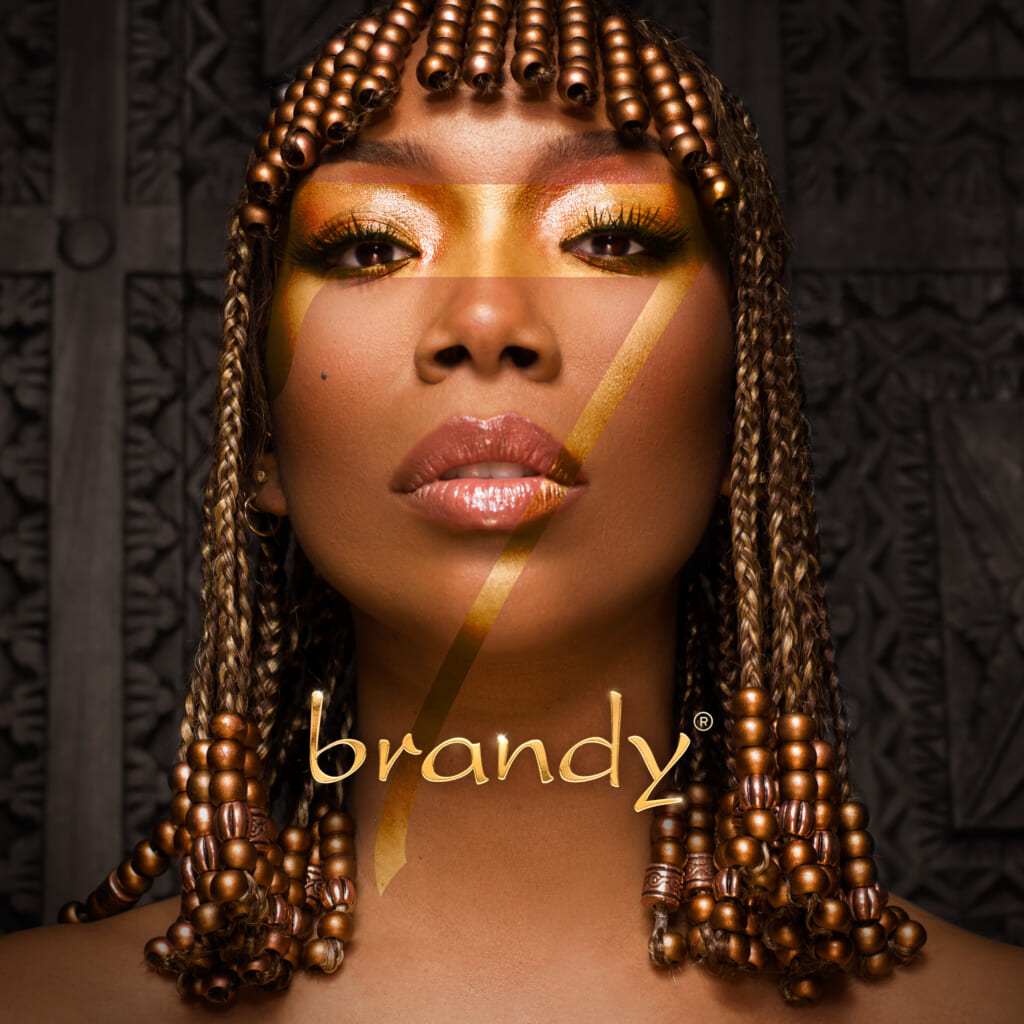It’s been eight years since Brandy last released her sixth studio album, Two Eleven, which was named to commemorate the day she was born, and the day her idol and mentor, Whitney Houston, passed away in 2012.
Now the “I Wanna Be Down” songstress is back with her latest musical offering, B7, a melodic, abstract body of work that has been praised by both fans and music industry peers.
Carrying in the tradition of tributing Houston, the album cover sees Brandy rocking a headpiece reminiscent of Houston in The Bodyguard. The opening track on B7, “Saving All My Love,” is also a familiar ode to Houston, whose 1985 song with a similar title “Saving All My Love For You” was a number one hit.
“I always try to find ways to pay homage to her, whether it’s my hair, whether it’s a song or just talking about her in general,” Brandy tells theGrio. “She is a huge reason as to why I even sing, why I even appreciate music the way I do. It started with my dad and then it was Whitney. Those are my two people that I just love and respect.”

Read More: Brandy, Deborah Cox, others sing ‘Heal The World’ for virtual COVID-19 campaign
On B7, Brandy opens up about love, personal heartbreak, and even her battle with depression. The music video to her latest single, “Borderline,” touches on mental health and explores the same theme on the last track of the album, “Bye BiPolar.”
“‘Borderline’ is about me in an experience where I fell so hard for someone that was just unavailable to me … [it’s] a very hard thing to experience when you fall in love all alone,” says Brandy. “I really had to tell a story that was deep, that I experienced, that was true to me but that I did overcome in the video.”
Using her music and art to spotlight mental health, she says, was important to bring awareness, particularly in Black communities, and during a time when the country is in a state of suffering and trauma.
“We don’t want to go to therapy. We don’t want to sit down and talk to a counselor. We don’t want to because we think that makes us crazy. And that’s not the case,” she says.
Brandy tells theGrio that she, too, has had struggles with her own mental health.
“I’ve dealt with depression in the most severe … like severe depression. I’ve dealt with trauma. I’ve dealt with PTSD. I’ve gone through a lot and I had to overcome a lot, but I had to overcome everything that I’ve overcame by doing the work,” she says. “A lot of the songs on the album, I was talking about the times where I wasn’t my best self. And I think when people can hear me say that, they can get help.”
To overcome, Brandy says she turned to therapy, prayer, journaling and meditation. Lately, the singer-songwriter says she’s also been on a journey of self-forgiveness.
“We blame others for things that we do to ourselves … and they may do the same thing, but you do it, too. So for me, it’s about self-reflecting … especially during these times,” she says. “I look into my memory and I’m like, wow, I shouldn’t have done that. My intention there wasn’t right. And I’m not hard on myself. I’ve learned how to be kind to myself.”
Brandy has seen her fair share of tragedy. More recently, she lost a dear friend and longtime collaborator LaShawn Daniels, who wrote and produced on her most critically-acclaimed albums, Never Say Never and Full Moon. Daniels, 41, was killed in a car crash on Sept. 3, 2019. He and Brandy had been working together on B7. The album’s vulnerability is partly due to his encouragement, she says.
“He truly taught me so much about writing, about vulnerability, about just being honest in what I’m saying and to not tell your story because you’re afraid of what people may think,” Brandy shares. “If you’re not telling your story then your music is not for you. It can’t just be for everyone else. It has to also be for you.”
Brandy admits to having a “season” of clapping back at people online, but it was Daniels who reminded her of the bigger picture.
“I thought I was, you know, coming into my voice. I thought I was such a punk for such a long time. I was clapping back and doing all the things that I never would do again. But [Lashawn] wanted me to know that you’re so much bigger than that,” she says.
“Your love for God, your spirituality … you need to always show that. You always need to show that when you’re in the light. He was on me tough.
“He wanted me to make a great album. He wanted me to believe in it and believe in myself. “
Have you subscribed to theGrio’s podcast “Dear Culture”? Download our newest episodes now!

